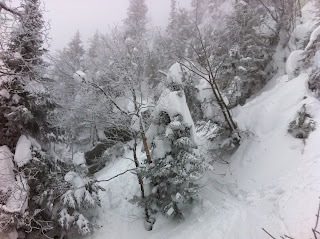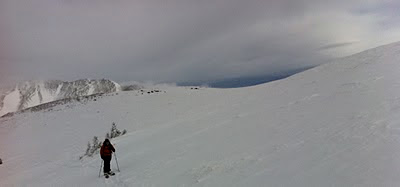I live in a small town. And in our town a local story has struck a nerve.
The story is whether it is worth saving money by awarding our school bus
contract to a national company or whether it is better to spend more, maybe
$50,000 or so, so our school buses are run locally. Although it’s a local story it is a universal question, but
I’ve got to back into it.
We have a new Thai place in town. It is in the same spot as the old Thai place and has the
same staff and décor as the old Thai place. It’s even run by the same wonderful woman, who works
hard. I don’t know why they have
changed their name and said they are new – it might be strategic and it might
be personal – but as part of the grand opening they threw an open house. Free food and a big party.
The kids and I joined a swarm of neighbors and friends. We walked in to a warm welcome and were
hustled to a long family-style table.
We saw many familiar faces around the place as we elbowed our way to the
platters of pad Thai and sushi,
aromatic chicken and spicy dumplings.
We looked around at tables crowded with parents and kids, couples out on
a free date, lone diners elbow to elbow with big groups, all enjoying the
buffet party. A guitarist belted
tunes and hammered away on his axe, like a John Hiatt shouting over the
restaurant din. Ski bums, worker
bees, and hangers on at a free feast.
Like a church supper, we all talked and laughed. We commented on the savory rice,
welcoming the new-old Thai place – Hot
Spice – to it’s new, well same, home on the Mountain Road.
And
right on the heels of the Thai Place Open House came the rousing annual
Christmas party at our local paper, the Stowe
Reporter. Early in the cycle
of holiday revels, the Stowe Reporter Party opens the season and is a real
throw down. The party spills from
the reception area of the paper’s headquarters – an old clapboard house in town
– photo in last post – into the small rabbit warren of offices and up the
windy, creaky wooden staircase. Some
years it’s a bender (I didn’t stay long enough this year to say). The publisher’s palatial penthouse was
jammed, elbow-to-elbow, with an entire town, including many faces from the Thai
feast.
Writers, ad guys, managers, business owners, friends, enemies,
colleagues, their kids, town officials and at least one dog libated to ring in
the season at the town’s weekly broadsheet. Finding someone to talk with was about as easy as putting
off chores.
It’s all a part of being in a small town. We are living out of each other’s
pockets. We say ‘good morning’
when we drop the kids off at school, share a kind word when we see each other
getting coffee ten minutes later at the gas station, nod hello at the grocery
store, smile kindly when driving politely through the stop sign in town. Our accountant’s daughter is our baby
sitter. Everything we do is with the people we live around. It is community and the commonality of
each event is we are all at them together. Well, not all, that would be weird, but the overlap is
interesting. We socialize with
each other and see each other regularly.
This is not typical, but it is small-town normal. There are upsides and downsides to
living in close quarters.
We
could easily live where we are anonymous.
Where each event we attend is with a different group of people; where we
don’t know the diners around us at a restaurant or the faces at the elementary
school in the morning or the coffee shop later in the day. Urban anonymity is a short drive in any
direction. Sixty million people
live within a five-hour drive of our town.
But we live here, saying hello to the same six people five times
on a given day. More than any
reason to be here – where it is cold and dark half the year, the mosquitoes have
names and you cannot get take-out – is community. And this is why the idea of pulling the school bus contract
has struck a nerve.
Stories
about school bus contracts do not make the paper in most places in
America. The big yellow buses move
through towns and cities countrywide.
For the most part the drivers are as unknown to the parents as, well,
the other parents. I bet though
people crave stories like the bus contract story. People crave connectivity even if they’d like it with a
healthy dose of anonymity (and the availability of take-out).
With
seven billion people on the planet isn’t it nice to know a few of the people
around you? I think it is.
A month ago our kids’ school bus driver came up to us at, yes, the
Thai place in Waterbury, a town down the road. We learned from her our street was going to close and we
chatted for a while. She knew us. She came up to us. A friend told me about how her third grader – doing what he
was supposed to do – got off the bus at the end of a quiet dirt road. It would be dark soon. The driver stopped the bus and called
the parent, double-checking the drop-off was right. Has your child lost a backpack? It’ll be at the bus barn. Substitute driver?
Oh that’s Mr. McHugh, a cop and neighbor in town. At many away sports events the only
parents in the room are the bus drivers.
It
is just not worth saving a few dollars by shipping the bus contract out of
town. Being analytical and
efficient has its place, but is not everything and can in fact be quite
corrosive. The cold calculus of
economics is devastating communities worldwide. Look at some basic barometers – school quality, neighborhood
safety, teen drug use – and we are failing. Call it commonsense or call it a ‘happiness index.’ What is at stake when we give up some
basic connectivity is nothing less than our humanity.
Sounds a stretch but think about it: regardless of where we live community is all about
connectivity. The buses are true
connectors – they take the kids from one life – home – to another, bigger, more
anonymous life – driving the kids to school, sport events, the Boston Science
Museum, Maine, even New York City.
That connector could be a less expensive one, separate from
community. Or, if we’re up for it,
it could be us.
Why is it important to have connectors? It makes the world safer; people are more polite, makes it harder to rationalize unethical behavior if you know your victims (right, bankers?); less worry and more help getting through the day; more smiles during the day; peace of mind; less likely to drive like a nut. The more connectors we have in life - the more we know about what is going on around us - the better is, well, life.
Here's the question, and in the case of the school bus it is a simple one: How much is it worth to know who is driving your kids to school? The answer is a lot.
The harder versions of this question are how much is it worth to know who is growing your food, making your shoes,
sewing your clothes, policing your streets, running your bank, running the businesses we rely on? Calculus might be more complicated but the answer is the same: Local is better.
And I don’t think it only works rural. It might not be the most efficient way to run the world, but
it would be the most human way.
David Rocchio lives, works and writes in Stowe, Vermont. (c) 2011 David Rocchio

















